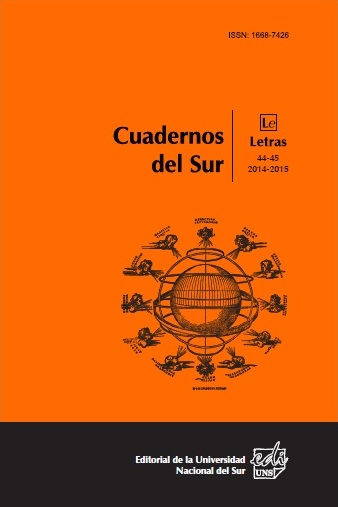A stranger in Moscow. El problema de la experiencia en Diario de Moscú de Walter Benjamin (1926-1927)
Keywords:
experience, revolution, narrativeAbstract
The articles “Experience and Poverty” (1933) and “The Storyteller” (1936), by German philosopher Walter Benjamin, support the hypothesis that, at the end of World War I, the faculty of transmitting experience through narration was being retracted. This loss could be linked to a combination of paradigm shifts about the experience of time, related to the industrialization of human praxis. The narration scene loses its practical, moral and pedagogical sense. On the other hand, with the social catastrophe (evidenced in the War) narration ability diminishes even more. The purpose of this article is to analyze Walter Benjamin’s text Moscow Diary (1926-1927), a notebook about his stay in the Russian capital, as a laboratory of the concept of experience that he would later develop.
Downloads
References
Agamben, Giorgio (2001), Infancia e historia, Buenos Aires, Adriana Hidalgo.
Buck-Morss, Susan (1995), Dialéctica de la mirada. Walter Benjamin y el proyecto de los Pasajes, Madrid, Visor.
Löwy, Michael (1997), Redención y utopía. El judaísmo libertario en la Europa Central. Un estudio de afi nidad electiva, Buenos Aires, El cielo por asalto.
Scholem, Gershom (2008), “París (1927)”, en Walter Benjamin. Historia de una amistad, Buenos Aires, Debolsillo, pp. 203-220.
Yvars, José Francisco y Jarque, Vicente (2008), “Introducción”, en Scholem, Gershom, Walter Benjamin. Historia de una amistad, Buenos Aires, Debolsillo, p.18, [prólogo].
Downloads
How to Cite
Issue
Section
License
Copyright (c) 2014 Yael Natalia Tejero Yosovitch

This work is licensed under a Creative Commons Attribution-NonCommercial-ShareAlike 4.0 International License.
Aquellos autores/as que tengan publicaciones con esta revista, aceptan los términos siguientes:
- Los autores/as conservarán sus derechos de autor y garantizarán a la revista el derecho de primera publicación de su obra, el cuál estará simultáneamente sujeto a la licencia Atribución-No Comercial-CompartirIgual 4.0 Internacional CC BY-NC-SA 4.0.
- Los autores/as podrán adoptar otros acuerdos de licencia no exclusiva de distribución de la versión de la obra publicada (p. ej.: depositarla en un archivo telemático institucional o publicarla en un volumen monográfico) siempre que se indique la publicación inicial en esta revista.
- Se permite y recomienda a los autores/as difundir su obra a través de Internet (p. ej.: en archivos telemáticos institucionales o en su página web) una vez publicado su trabajo, lo cual puede producir intercambios interesantes y aumentar las citas de la obra publicada. (Véase El efecto del acceso abierto).










